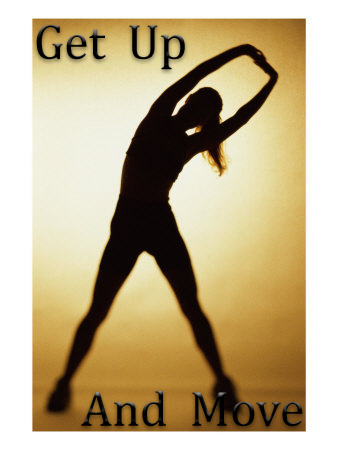 What exactly is osteoarthritis? Osteoarthritis is a form of arthritis that causes a degeneration of the joint cartilage. This can lead to an inflammation of the bones and eventually bone spurs. Sounds painful.
What exactly is osteoarthritis? Osteoarthritis is a form of arthritis that causes a degeneration of the joint cartilage. This can lead to an inflammation of the bones and eventually bone spurs. Sounds painful."Do high impact exercises, such as running, cause me to have osteoarthritis?"
Many people believe that the constant high level of forces involved with sports such as running can cause this particular erosion of cartilage. Not surprising, as knee pain ranks high of the list of running injuries. Keep those shoes ready to hit the road though, recent research has shown that a runner's odds of getting osteoarthritis is no higher than those of a non-runner [1]. That's right, normal joints are designed to undergo those intense forces that can be 2-3 times your body weight. In fact, vigorous exercise can actually help prevent the development of osteoarthritis.
So if a high level of exercise doesn't put me at risk for osteoarthritis, what does? Things such as old knee injuries which resulted in scar tissue, age, weight above a normal Body Mass Index (BMI), or abnormally formed joints are all to blame for this painful disease. While we can’t change how our body is formed, or the fact that we all age, we can help to prevent osteoarthritis by attempting to prevent knee injuries and keeping our weight down. Young adults who undergo a traumatic knee injury are unfortunately 8 times more likely to develop osteoarthritis than those who don’t. Those adults who are overweight and obese double their risk of severe knee osteoarthritis for every increase in 5 BMI units (such as going from a BMI of 25 to 30 – learn how to calculate your BMI here).
While things such as running or racket sports are not responsible for our joints “wearing out”, there are a few activities that can. Exercises such as repetitive leg squats with a heavy weight or occupations involving a high level of squatting or kneeling can increase your risk for osteoarthritis down the line. On the other hand, leading a sedentary (inactive) lifestyle doesn’t help your knees out either. Avoiding activity can actually cause a decrease in the density and thickness of your cartilage.
So get out there and keep those knees healthy by having a good mixture of endurance and resistance exercises. Your knees will thank you a few years down the road.
[1] Nieman DC. You asked for it: Question authority. ACSM’s Health & Fitness Journal. 2010;14(6):5-7.
No comments:
Post a Comment